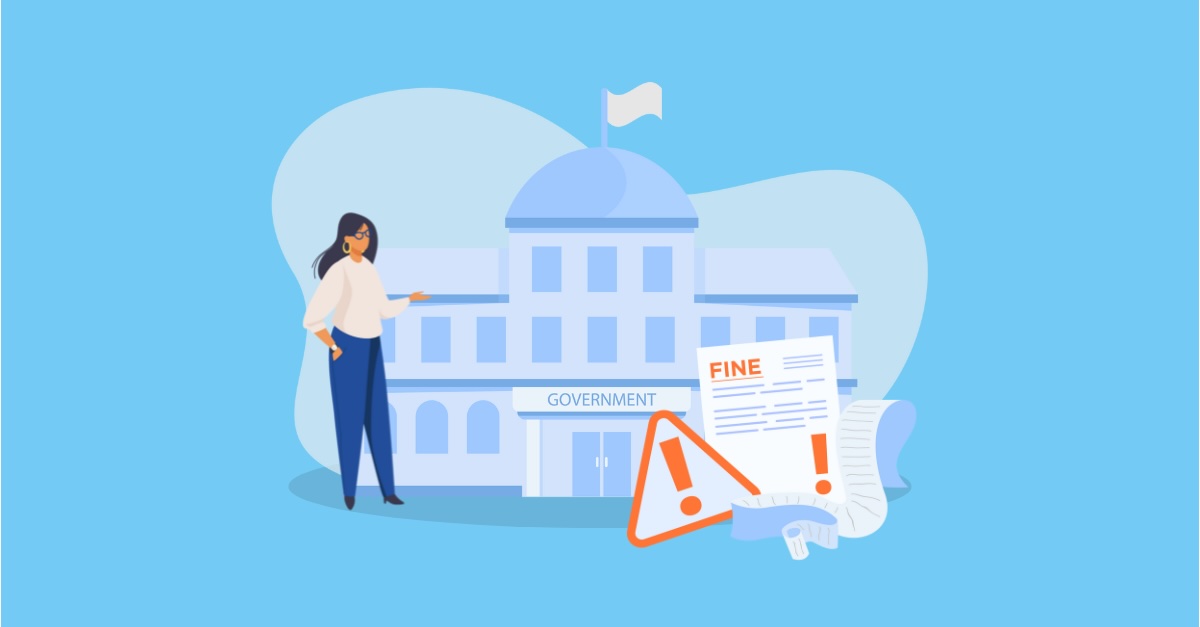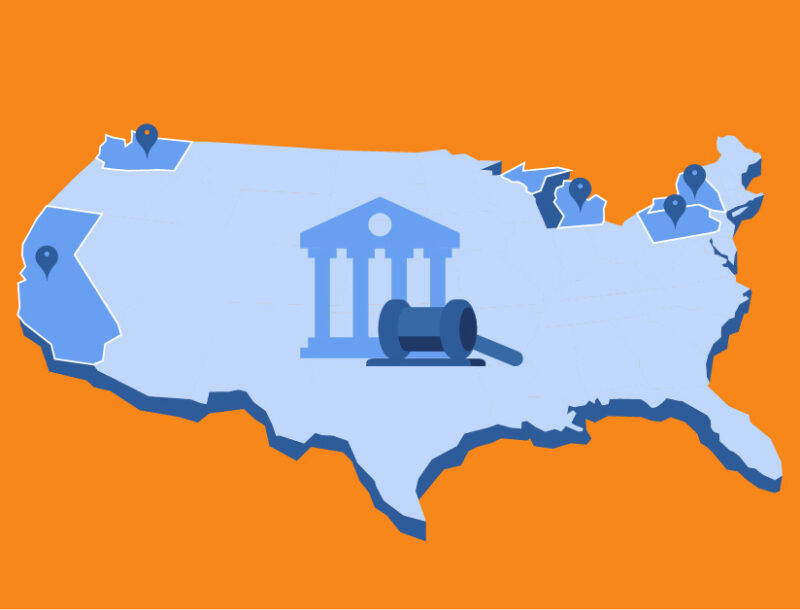What is Regulatory Compliance for Consumer Finance?

Regulatory compliance is an essential aspect of any business that operates in a regulated industry, such as consumer finance.
In this blog, we’ll review everything consumer finance organizations need to know about regulatory compliance, including what it is, why it’s important, its benefits, and the tools and resources available to organizations looking to ensure regulatory compliance and mitigate risk.
What is regulatory compliance?
Regulatory compliance is an umbrella term that describes the process of adhering to laws, rules, and regulations. It’s a requirement for all companies and organizations—especially consumer finance companies—to comply with the relevant regulations in order to remain legally compliant, operate lawfully, and protect consumers.
Why is regulatory compliance important?
Regulatory compliance is important for consumer finance companies because it helps:
- Ensure that organizations are not engaging in practices that may harm consumers or other stakeholders
- Protect the organization from potential lawsuits and regulatory enforcement actions, thus protecting its bottom line and brand reputation
- Build trust with customers, partners, and other stakeholders by demonstrating a commitment to responsible practices
What are the penalties for non-compliance?
Failure to adhere to regulatory compliance obligations can have serious consequences, such as:
- Public enforcement action(s) by the regulators
- Significant monetary penalties and fines
- Potential criminal charges
- Cease and desist orders
- Restitution orders
- Damaged brand reputation
- Loss of consumer trust
- Decreased business and revenue
How does regulatory compliance benefit consumer finance organizations and consumers?
Regulatory compliance offers benefits for both the consumer finance organization and its consumers.
For organizations, compliance helps to reduce the risk of legal and regulatory penalties, helps to build trust with customers and other stakeholders, and can help businesses to improve their operations and processes, leading to increased efficiency and profitability.
For consumers, regulatory compliance helps to ensure that they are protected from unscrupulous or unethical business practices, that products and services are safe and reliable, and that businesses are operating in a transparent and ethical manner. This can be especially important in the financial services industry where there is a high risk of fraud or abuse.
What are the key regulations for consumer finance companies?
The key regulations that govern consumer finance companies vary depending on the jurisdiction, but they generally include the following:
- The Truth in Lending Act (TILA) and its implementing regulations, which require lenders to provide consumers with accurate and complete information about their loans and credit products
- Unfair, Deceptive, or Abusive Acts or Practices (UDAAP), which prevents organizations from engaging in misleading marketing or advertising practices that could harm consumers
- The Fair Credit Reporting Act (FCRA), which requires lenders to accurately report information about consumers to credit bureaus
- The Fair Debt Collection Practices Act (FDCPA), which regulates the practices of debt collectors and prohibits them from engaging in deceptive, unfair, or abusive practices
- The Equal Credit Opportunity Act (ECOA), which prohibits lenders from discriminating against consumers on the basis of race, gender, marital status, or other prohibited characteristics
- The Gramm-Leach-Bliley Act (GLBA), which requires lenders to protect the privacy of consumers’ financial information
- The Dodd-Frank Wall Street Reform and Consumer Protection Act (Dodd-Frank), which regulates the lending practices of financial institutions and provides consumers with additional protections
- State laws, which often impose additional requirements on consumer finance companies
Which regulators oversee consumer finance companies for compliance?
Consumer finance companies are typically regulated by state and federal authorities.
The primary regulator for consumer finance companies is the Consumer Financial Protection Bureau (CFPB), which is responsible for enforcing consumer protection laws and regulations.
In addition to the CFPB, consumer finance companies may also be subject to oversight by other federal agencies, such as:
- The Federal Trade Commission (FTC)
- The Office of the Comptroller of the Currency (OCC)
- The Federal Deposit Insurance Corporation (FDIC)
- The Securities and Exchange Commission (SEC)
- Financial Industry Regulatory Authority (FINRA)
State and local regulators may also have jurisdiction over consumer finance companies, depending on the state.
What are some best practices for regulatory compliance?
To ensure regulatory compliance, consumer finance companies should implement the following best practices:
- Develop and implement an effective compliance program: A strong compliance program is a critical step for ensuring regulatory compliance. Organizations should build a comprehensive compliance program in place that is tailored to their specific business and operations
- Regularly review and update policies and procedures: Regularly review and update policies and procedures to ensure they remain in compliance with the latest laws and regulations
- Train and educate employees: Ensure that employees are properly trained on the applicable laws and regulations, as well as the company’s policies and procedures
- Maintain accurate records: Maintain accurate records of business activities, including customer data, transactions, marketing materials, and other relevant information
- Conduct regular audits: Conduct regular audits of operations to ensure compliance with the applicable laws and regulations.
- Stay up to date with regulations: Stay current with changes to laws and regulations that affect your industry by regularly reviewing relevant websites, attending industry conferences, and consulting with legal experts
What tools are available to help ensure regulatory compliance?
There are a number of tools and resources available to help companies ensure regulatory compliance:
- Regulatory databases: Companies can use online databases to search for and find relevant laws and regulations, such as RegAlytics or Compliance.ai
- Regulatory publications: Companies can access publications such as Consumer Finance Monitor, JD Spura, or PerformLine’s blog to learn about the applicable laws and regulations
- Compliance training: Companies can take advantage of online or in-person compliance training courses to educate their employees on the applicable laws and regulations
- Regulatory compliance software: Companies can use regulatory compliance software, like PerformLine, to automate compliance discovery, review, and monitoring, to track compliance activities across internal and external entities, and analyze compliance data
- Consultants: Companies can hire legal and regulatory consultants to help them develop and implement an effective compliance program
Simplify regulatory compliance with PerformLine
At PerformLine, we pride ourselves in supporting our clients in establishing top-quality regulatory compliance programs.
Our omni-channel compliance monitoring technology, alongside extensive experience working with regulators and clients in regulated sectors, empowers consumer finance companies to effectively manage regulatory compliance risk across marketing channels.
Speak to an expert today and get started with PerformLine.


